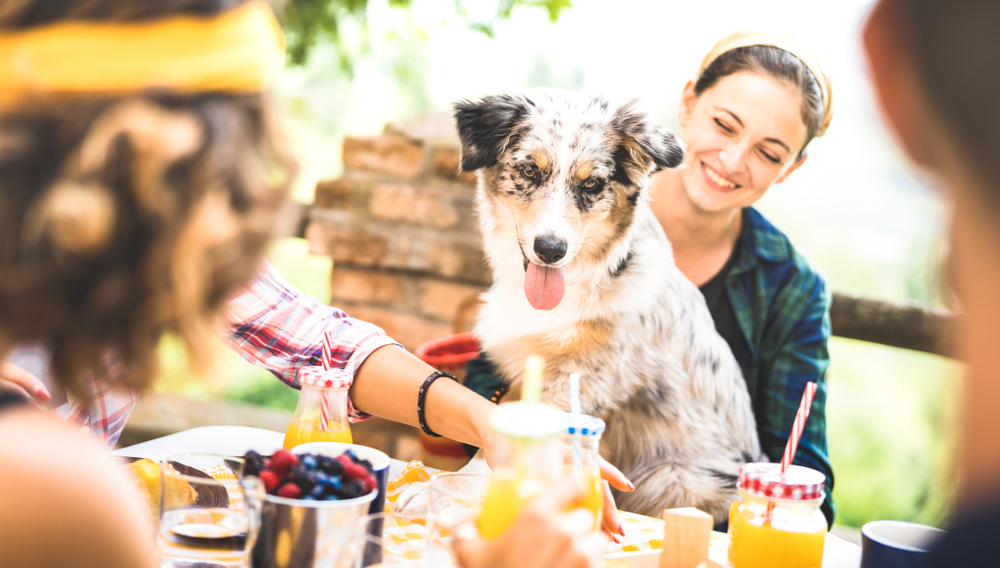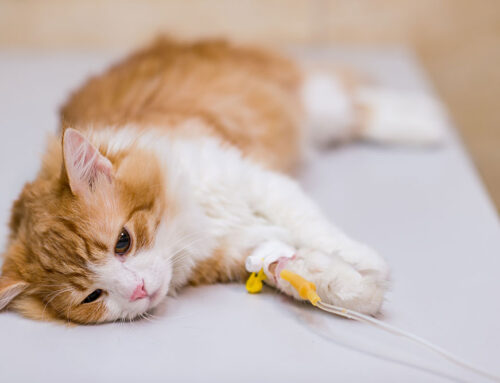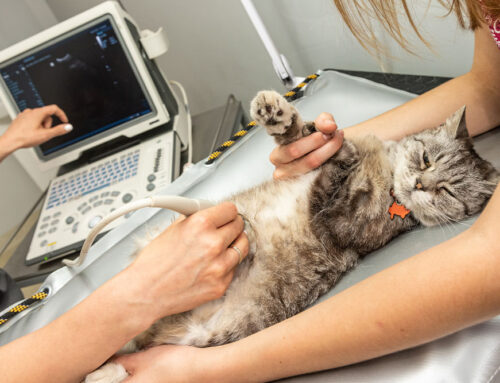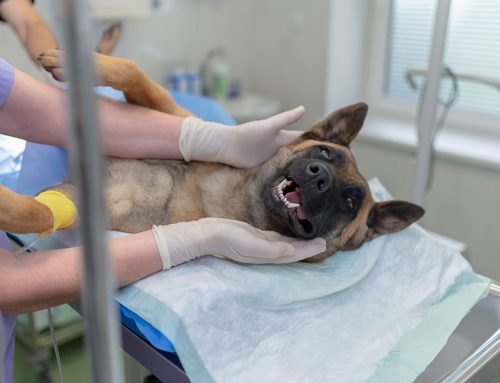In the veterinary world, holidays mean more than celebrations and decadent food—they typically mean an increase in pet emergencies. With picnics, fireworks displays, and general chaos, July Fourth is no exception. Although your holiday may be a little more low-key this year, trouble may still find its way to your pet, and ruin your holiday weekend. Follow our do’s and don’ts list for a fun—and safe—July Fourth.
Do prepare ahead of time if your pet is sensitive to loud noises
For pets with noise aversion, July Fourth is no picnic. As we discussed in our May blog post,
more than 30% of pets suffer from extreme anxiety related to loud noises, such as thunderstorms and fireworks. If your pet hides in your closet during thunderstorms, or dashes under the coffee table every time a car backfires, you will need to prepare for the upcoming onslaught of booms and bangs. Your local fireworks celebration may be cancelled, but this won’t stop your neighbors from lighting their own displays—in fact, it may encourage more backyard fireworks.
To help your pet relax during the barrage of loud noises, prepare a retreat for them. In an interior room corner, place a cozy bed and your pet’s favorite toys. If your pet seeks solace in a small space, such as a closet, they may prefer a crate lined with their favorite blanket. Turn on the television, or play soft music to drown out the scary sounds, and distract them with a long-lasting treat, such as a peanut butter-filled Kong or food puzzle. If your pet typically becomes extremely anxious over the holiday, or your efforts don’t help ease their fears, speak with our Burlington Veterinary Center team about medications that may help.
Don’t take your pet to July Fourth celebrations
We know your pet is your constant sidekick, and you don’t want to pass up the chance to show off their new star-spangled bandana, but refrain from taking them along to July Fourth festivities. Although you may not attend any crowded parades or festivals this year, small family gatherings can also present plenty of pet hazards. Your dog may gobble up toxic foods, such as grapes, raisins, or chocolate, dropped by small picnickers, or slip through an open door or gate, and become lost. Leave your pet to snooze in your quiet, empty house—a luxury they probably miss, since your family has been home so much lately.
Do have your pet microchipped
Each year, shelters fill with pets who run away over the July Fourth holiday. A sudden loud noise from a neighbor’s fireworks may cause your pet to bolt, or slip through a gate left open by a houseguest. If your pet does escape, a microchip is the best way to increase the likelihood of a happy reunion. Your pet’s collar can break, or be taken off, and an identification tag can become illegible, but a microchip provides life-long permanent identification. If your lost pet shows up at an animal shelter, their microchip can be scanned, and the unique number used to locate your contact information. Our Burlington Veterinary Center team can implant your pet’s microchip during a routine office visit, since sedation or anesthesia is not required.
Don’t share picnic food with your pet
In addition to potentially toxic ingredients, your picnic table will likely be loaded with rich, decadent foods that will leave your pet drooling. Heaping a plate with ribs, potato salad, and baked beans for your pet may be tempting, but sharing your feast is a recipe for disaster. Your pet’s digestive tract is used to the same basic food ingredients, and probably won’t react well to a sudden diet change. At the least, your dog will end up with a miserable stomach ache, and diarrhea. At worst, the rich foods may irritate their pancreas, the organ that helps them digest fats. Pancreatitis can cause severe abdominal pain, vomiting, and dehydration that requires lengthy hospitalization, and critical care, for recovery. If you can’t resist your pooch’s puppy dog eyes, share a few bites of lean meat or fresh veggies, like carrots or cucumber, instead of fatty picnic foods.
Do prevent a barbecue disaster with your pet
The aroma of grilling meat may be so tempting that your pet may attempt some pretty crazy antics to score a treat. Follow these tips to prevent a barbecue disaster:

- Dispose of grease properly — If you pour grill grease onto gravel or rocks, your pet may try to lick the flavor from the rocks, only to ingest them whole. Many pets have needed emergency surgery to remove grease-covered rocks from their digestive tract, so dispose of grill grease in a sealed container, in a closed trash can, that your pet cannot get into.
- Prevent burns — Never leave your pet unattended near a hot grill. Your pet may try to snatch a hot burger when you turn your back, or lick the hot grates after you plate the cooked meat. Keep your pet away until the grill has completely cooled, and you have cleaned up all messes.
- Store used skewers carefully — Meat-soaked skewers can tempt your pet to chew the wood, or ingest the skewer whole. If you make kabobs, ensure the skewers are disposed of properly, so your pet does not end up with a punctured stomach or intestine.
We hope your family has a fun and safe July Fourth holiday. If you would like to make an appointment to have your pet microchipped, or have questions about your pet’s safety, contact us.







Leave A Comment